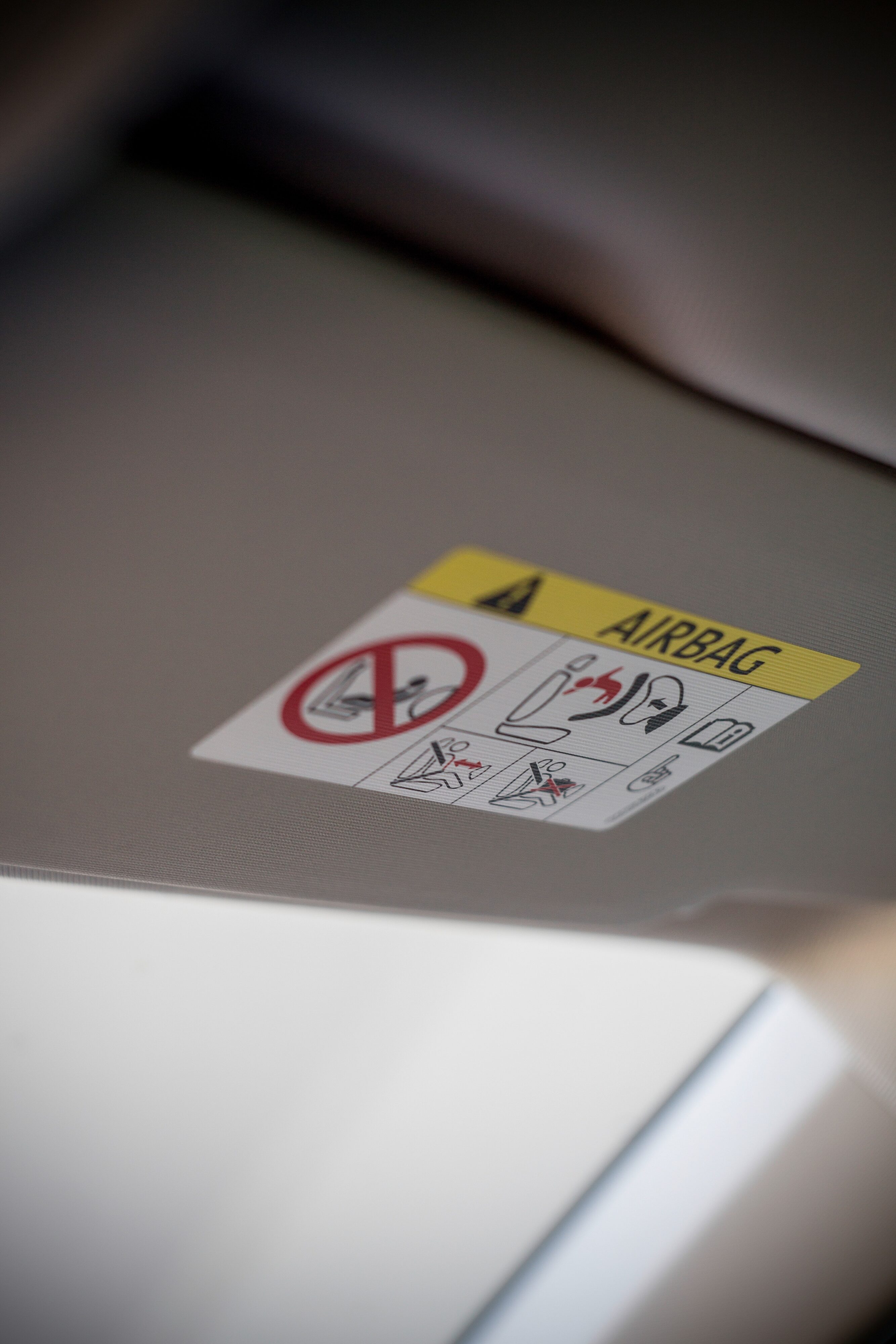Airbags, along with seatbelts, are two of the most beneficial safety features in today’s automobiles. Airbags may deploy when there is a front-end or near front-end collision. The United States requires that airbags deploy in a barrier crash where there is a speed deceleration of as little as 14 mph.
All new vehicles manufactured since 1998 are required to have front airbags to protect both the driver and passenger. Many manufacturers have gone beyond the minimum front-impact airbags to include up to eight airbags placed strategically throughout the vehicle, including side-impact airbags. These airbags, when used in conjunction with seatbelts, significantly reduce the possibility of your head striking the vehicle’s interior during a crash.
Airbag Safety Risks
While airbags are generally safe, The National Highway Transportation Safety Administration highlights several conditions when an airbag should be turned off. Some instances include:
- Rear-facing infant restrained in a front passenger car seat,
- Children under the age of 13 who must sit in the front seat due to a medical condition,
- Adults with medical conditions that may be adversely affected by a deployed airbag, or
- Drivers who need to sit close to the steering wheel due to a medical condition or small stature.
Airbags work to save lives under the laws of motion and physics. A moving vehicle has momentum and will move in its original direction at a predetermined speed unless it meets an outside force. In the case of an accident, the vehicle’s momentum stops when it comes into contact with another vehicle or object. The people and objects inside the car will continue moving until they, too, meet a stopping force.
An airbag is deployed in a fraction of a second, and acts as a stopping force, keeping the person from moving forward into the steering wheel or other interior objects. The airbag acts as a pillow, slowing the person without abruptly stopping them, which results in less possibility of serious injuries or death.
Airbags May Not Always Deploy
Sometimes airbags will not deploy. There are several reasons why this may happen:
- Minor Crashes
- Passenger airbags often have a sensor and will not deploy if there is no one in the passenger seat or the person occupying the seat is small and under a certain weight.
- Side airbags may also have a weight sensor and may not deploy if the seat is unoccupied or a small or light-weight individual is in the seat.
Have You Been Injured in an Accident?
While airbags reduce the risk of injury, there are still many instances when a driver or their passengers have sustained severe injuries or death. If you or a loved one has been injured in an accident, you should consult an experienced personal injury attorney. An attorney can help you through this trying time.
Contact Saladino & Schaaf today or call us at 270-444-0406 (Paducah) or 270-753-1529 (Murray) to schedule a free consultation. You may be entitled to compensation for your injuries, but you must act quickly. There are time limits on legal action.


